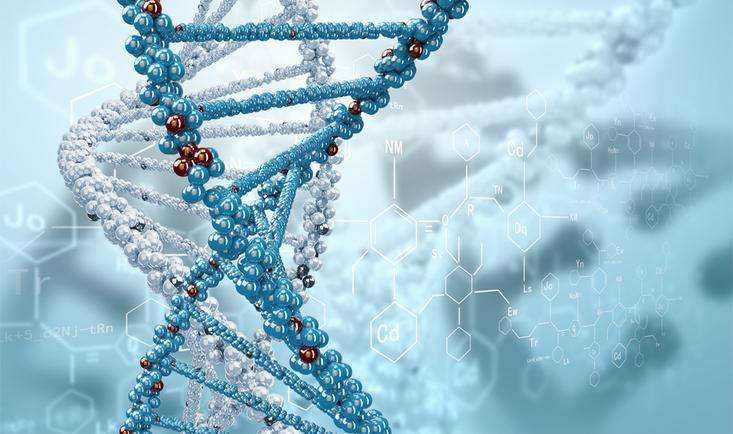There are actually twenty-two naturally occurring amino acids known on Earth, and more may await discovery, but only twenty of them are necessary to produce us and most other living things. The twenty-second, called pyrrolysine, was discovered in 2002 by researchers at Ohio State University and is found only in a single type of archaean (a basic form of life that we will discuss a little further on in the story) called Methanosarcina barkeri.)
实际上,地救上有22种天然存在的氨基酸,更多的尚待发现,但只有其中20种对我们及别的生物的形成是必不可少的。第22种叫做吡咯赖氨酸,是2002年由俄亥俄州立大学的研究人员发现的。它只存在于太古代的巴氏甲烷八叠球菌之中(一种基本的生命形式,我们过一会儿还要讨论这个问题)。

How long would you have to pull the handle before all 1,055 symbols came up in the right order? Effectively forever. Even if you reduced the number of spinning wheels to two hundred, which is actually a more typical number of amino acids for a protein, the odds against all two hundred coming up in a prescribed sequence are 1 in 10^260 (that is a 1 followed by 260 zeroes). That in itself is a larger number than all the atoms in the universe.
你要拉多少次把手那1055个符号才地以合适的顺序排列起来?实际上,拉多少次都没有用。即使你把转轮的数目减少到200个——这其实是蛋白质分子所含氨基酸分子的比较典型的数量,所有200个符号都按照特定的顺序来排列的概率是10的负260次方。那个数字本身比宇宙里原子的总数还要大。
Proteins, in short, are complex entities. Hemoglobin is only 146 amino acids long, a runt by protein standards, yet even it offers 101^90 possible amino acid combinations, which is why it took the Cambridge University chemist Max Perutz twenty-three years—a career, more or less—to unravel it. For random events to produce even a single protein would seem a stunning improbability—like a whirlwind spinning through a junkyard and leaving behind a fully assembled jumbo jet, in the colorful simile of the astronomer Fred Hoyle.
总之,蛋白质是十分复杂的实体。血红蛋白只有146个氨基酸分子长,按照蛋白质的标准只是个矮子,然而即使那样,氨基酸的排列方式也有10的190次方的可能性。因此,剑桥大学的化学家马克斯·佩鲁茨花了23年时间——大体上相当于一个人的职业生涯——才解开了这个谜。想要随随便便地制造哪怕是一个蛋白质分子似乎是极不可能的——天文学家弗雷德·霍伊尔打了个精彩的比方,就像是一阵旋风掠过一个旧货栈,后面留下了一架装配完好的大型客机。













